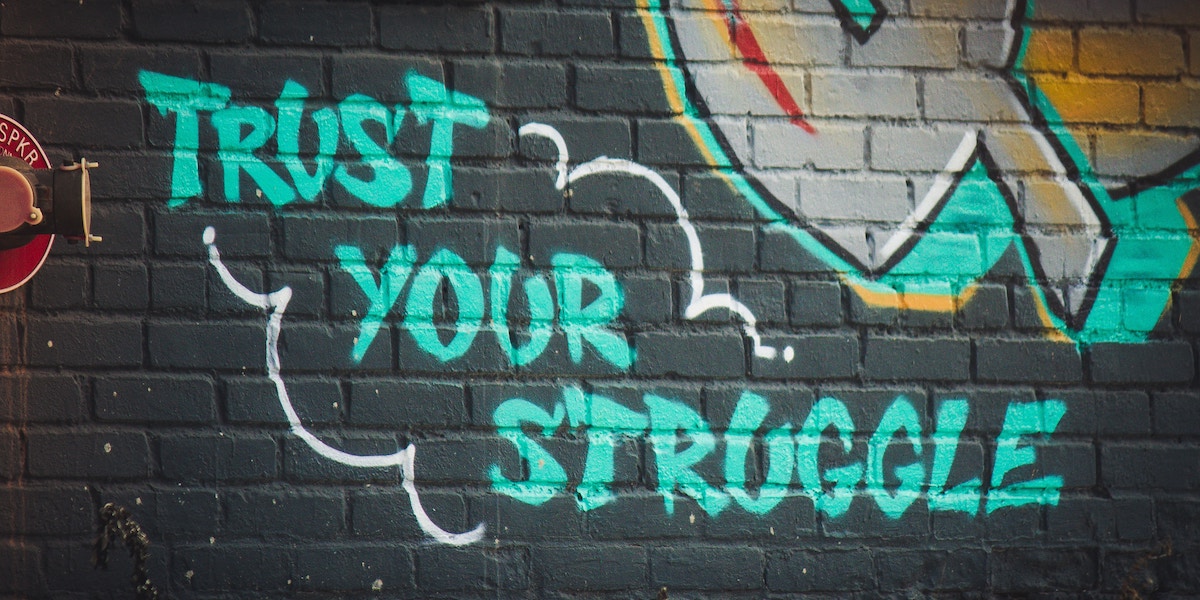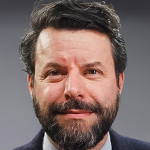READ ON TO DISCOVER:
- Why having a personal hero is a bad idea
- How a stroke led Chuck Close to a major breakthrough
- What impressive feat a one-eyed artist was able to accomplish
Charles Duhigg is a Pultizer Prize-winning journalist and the bestselling author of The Power of Habit: Why We Do What We Do in Life and Business and Smarter Faster Better: The Transformative Power of Real Productivity. He recently sat down with Srinivas Rao on the Unmistakable Creative podcast to discuss why even the most admirable among us are flawed, and how setbacks are crucial signposts on the journey of self-discovery.
This conversation has been edited and condensed.
Srini: Growing up, did you have a hero?
Charles: Not really, no. I would actually argue that having a hero is not a great thing, because it’s too simplistic. There are certainly people that I admire, people who live with purpose and dedication whose examples I draw a huge amount of inspiration from. But I’m very cognizant of the fact that those people are not heroic. Because if you’re heroic, it’s not particularly hard to do things. If you’re a hero—like a Jedi Knight with a lightsaber—all the obstacles fall away with just a little bit of effort. But that’s not how life works.
Take Reverend Martin Luther King, who I think is deeply, deeply admirable, and, by the way, was also a deeply flawed person. He had positives, and he had negatives. And what’s most amazing about him is that he dedicated himself to a philosophy of nonviolent protest. Is he a hero? I don’t think he is. I think he’s something much more impressive—a person who found a purpose, and was willing to make sacrifices and continue working, even when it was not clear that the work was going to be successful.
John Lewis was also a major figure of the civil rights movement. In his early 20s, he crossed the bridge out of Selma and was beaten by police officers. But what has actually been most impressive about John Lewis is that since then, since he has been out of the public eye, he has spent the rest of his life serving in Congress, working every single day on things that oftentimes are not successful in order to make the world a better place. Going in and filing some amendment to a bill is not particularly heroic—nobody ever writes, “In Star Wars Part Seven, Luke Skywalker files a cloture motion.” But that’s actually what makes the world change. And those people are deeply admirable, not because they’re heroes, but because they found a purpose, and despite their setbacks, they worked to succeed.
Trending: Navy SEAL Secrets for High Performance Under Pressure
Srini: I love that. If not heroes then, who would you say had a profound influence [on your life]?
Charles: I don’t know—I just don’t think that way. I actually think it’s dangerous to think that way. For people who want aphorisms, or want heroes, or want one figure who solves everything—it’s a way of telling yourself that you can stop thinking.
“The only people in this world who are unflawed are super boring people.”
Let me give you an example. There’s a guy named Lee Lorch who led the fight to desegregate Stuyvesant Town, which is a big housing village in New York City. And he got fired again and again and again from universities for standing up for civil rights, particularly for integration of African-Americans into what had previously been segregated environments. And apparently, from everyone who I’ve ever spoken to, Lee Lorch was awful to spend time with. He was combative and obsessive and self-aggrandizing—yet he fought for civil rights his whole life, and he got a lot done.
That’s why there are lots of people who I admire, and there are lots of people who I look at and say, “I want to steal that element of who that person is. I want to steal that element of their character.” But there isn’t just one person, because that’s too much to put on one person. That’s too much to put on ourselves. It has to be this mosaic.
Srini: I agree with you—my perspective on life and creativity has been shaped by more than 600 people who I’ve interviewed.
One of the things that really struck me was when you mentioned how both [Martin Luther King and Lee Lorch] were deeply flawed. And it’s funny, because I’ve heard that same sentiment echoed about other high-achieving people. Why is it that this deeply flawed nature and the accomplishment of amazing things seem to be birds of a feather?
Charles: I don’t think it’s that spectacular people are deeply flawed, and therefore also great. It’s that all of us, all human beings, are deeply flawed. People who do great things tend to recognize their flaws, make peace with them, and say, “I am flawed in this one way. Let me figure out the situations in which that flaw is a huge strength, and try and put myself in those situations,” rather than trying to be an unflawed human being.
Because to be honest, the only people in this world who are unflawed are super boring people. You can be unflawed, but that means you’re never going to try anything hard. You’re never going to take any risks. You’re never going to make any mistakes. You’re never going to do anything—and that’s a recipe for being vanilla.
If you’re dedicated to believing in something and fighting for it, then by definition, there are going to be flaws in your personality. And once you accept that, then the next step is to say, “These flaws are experiments, and I’m going to learn where these flaws work, and where they’re drawbacks. And I’m going to do everything in my power to maximize the strength and minimize the weakness.”
Trending: How to Make Menopause the Best Time of Your Life
Srini: So how do you find the situations in which your flaws become your strengths? This is fresh in my mind because somebody asked me recently about what all the people that I interview have in common. And one thing that I did find is that almost every one of them took something that, on the surface, seemed like a major disadvantage, like dyslexia, and turned it into a disproportionate advantage in their work.
“The best thing that can happen to us is to encounter some obstacles that test us, and make us think about that motivation, and push us to continue working.”
Charles: So I would push back on that, because I don’t think that’s true. There’s very little evidence that shows that dyslexia becomes an advantage. What we do know is that people who are dyslexic oftentimes learn ways to push themselves, and to be persistent. They develop more grit because they’ve had to show grittiness in order to do everyday activities like reading, and that grit spills over into helping them in other settings. But it’s not like, “The fact that I’m dyslexic causes me to be great.” It’s, “The fact that I’m dyslexic gave me an obstacle to overcome, and I learned skills in persistence that I can now apply to other problems.”
Now, one exception to that is Chuck Close, the artist. He did what most people refer to as photorealistic portraits—paintings and drawings of people that look like photographs. And then he suffered a stroke. And as a result of the stroke, he was confined to a wheelchair, and he lost the ability to do precise brushwork. So at that point, Chuck Close decides to come up with a new form of portraiture, which is to divide the canvas into boxes. He says, “I’m only going to paint [individual] two-inch by two-inch boxes, and put these boxes in combination. And if you step back from them, they will look like a portrait of someone.” He actually became much more famous because of this new style of portraiture.
Now, that’s a situation where someone has a disability, and they use that disability to do something new and amazing. But not every person who has a stroke becomes an amazing portraitist. What’s important is that Chuck Close said, “When I don’t have one set of tools available to me, I will find another set of tools that will allow me to continue doing portraits.” But it’s not because of his disability that he did amazing work—he did amazing work, and his disability shaped that work in another direction.
Srini: That reminds me of a story I read about the guy who did all the glasswork on the ceiling of the Bellagio. He went blind in one eye, and that completely changed the way he shaped the glass, and it actually became much more interesting as a byproduct. So in what seems like a really bad situation, what separates the person who reacts like that from the one who doesn’t?
Charles: That’s Dale Chihuly. And I think actually most people respond that way. There are not a lot of people in history who were super high performers, and then had one setback and everything fell apart. Actually, there are many, many more stories of people for whom everything was always going right, and everyone assumed they were talented, but they had one setback and never recovered—because it turned out that they were just lucky, instead of talented.
I think that most people find a motivation that drives their work. And in some ways, the best thing that can happen to us is to encounter some obstacles that test us, and make us think about that motivation, and push us to continue working.
“The truth is, we just don’t know whether we actually are in love with the process until we experience the setbacks.”
If you look at most politicians who have gotten to the presidency, they often had some period of deep disappointment early in their lives. But it’s not that they became president because of that setback—it’s that they had the capacity to become president, and when they encountered setbacks, they knew that they could push through it, because they had this genuine, passionate commitment to the work, as opposed to just the outcome of the work.
Trending: Microsoft, Google, and Beyond: What Business at the Cutting-Edge of AI Looks Like
[There’s a huge] difference between someone who says, “I love making art. I love experimenting with different ways of holding my brush or blowing glass or writing stories,” and someone who says, “I would love to write a bestselling book,” or, “I would love to make a great painting,” or, “I would love to have a famous piece of sculpture.” If all you’re focused on is the end product, if that’s all that interests you, then it’s very, very hard to make it through those setbacks. But if you’re fascinated by the activity itself, if you’re fascinated by the process and the journey, then the setbacks really aren’t that big of a deal. It’s disappointing, but the setback teaches you a new possibility, a new way forward—like, “That didn’t work, so now I’ll try this.”
The truth is, we just don’t know whether we actually are in love with the process until we experience the setbacks. We might tell ourselves, “I don’t care if people like my art—I just love making art!” But until you’ve been through it, it’s very hard to test that thesis. If you find that you’re going into work, and the work kind of sucks, and nobody ever appreciates you, but you still like going in every day, you discover, “I actually do like doing the work.”
Srini: To me setbacks are the biggest tests that stand between us and the next level of significance. Something good always seems to come from a setback, even though it never seems like it in the moment.
Charles: Yeah, but again, I think it’s really important not to fall into these platitudes—“Something good always comes from it.” You know what? Sometimes nothing good comes from a setback. It’s important to be honest with ourselves and say, “Sometimes bad things happen, and that’s okay.” If you still like what you’re doing in the midst of the bad thing, then you’re doing the right thing. And if you don’t like what you’re doing, it’s okay to say, “Maybe I should go do something else.”
I became an editor about two years ago at the Times. I loved when we were successful, but when we had a setback, I was like, “Ah, this job sucks.” Whereas when I’m reporting and writing stories, even when there’s a setback, it’s like, “Oh, that didn’t work, but here’s another way to try.” I just love reporting, and I love writing. And being honest with yourself, and learning that about yourself—that’s when you learn where you’re going to be successful.
Ready for more big ideas like this? Join the Next Big Idea Club today!





























